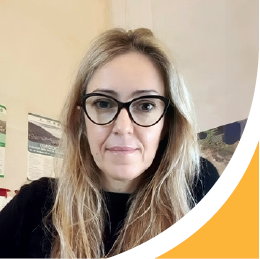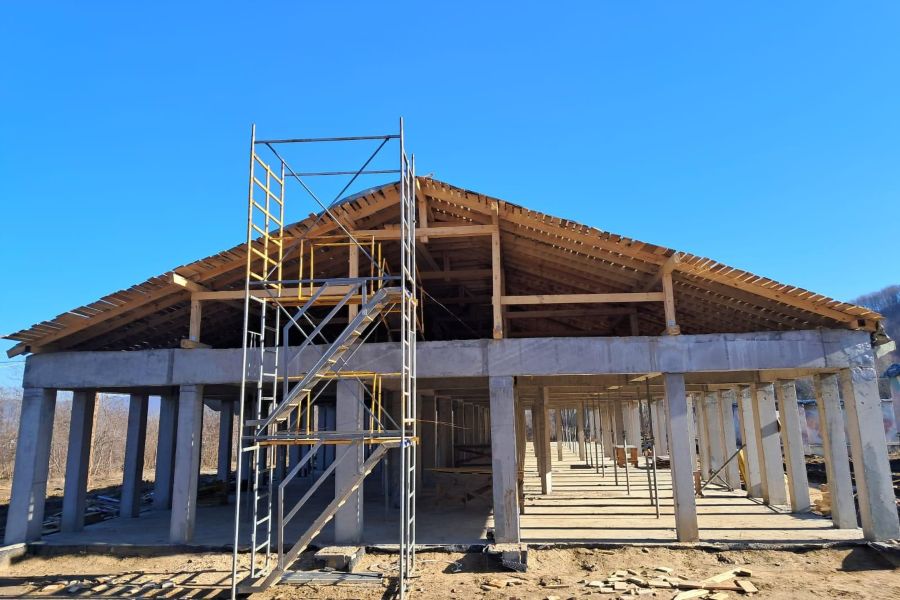The R2COM project is a collaborative European effort to enhance the capabilities of NGOs and Civil Society Organisations (CSOs) in the complex phase of post-release reintegration.
This initiative has contributed to the modernisation of the practices and tools employed by civil society stakeholders, introducing a paradigm shift in how the reintegration of individuals vulnerable to radicalisation and extremism is handled and managed.
Incorporating cutting-edge research and practical insights, R2COM promotes comprehensive, evidence-based approaches that respect the complexities of human behaviour and societal dynamics.
To prepare practitioners to use this methodology in their daily work, the project has developed a robust training framework, and an innovative vulnerability assessment and case management tool. These tools are complemented by humane and effective intervention strategies focused on ensuring that the transition of individuals from penal institutions back to society is both supported and sustainable.
Learn more about R2COM from the testimonials of project partners and participants.

Luisa Ravagnani
Vice President of Associazione Carcere e Territorio, Italy
As widely recognised, the phase of post-penalty reintegration is particularly delicate for several reasons related to the individual’s experiences, societal prejudice against those coming from prison, and the challenges of rebuilding a social life in accordance with the rules of legality and peaceful coexistence.
Criminological studies highlight that the initial weeks post-penalty represent crucial moments for either the consolidation of desistance or the recurrence of reoffending. In this phase of extreme vulnerability, individuals who have completed their incarceration also face a higher risk of being drawn towards extremist ideologies, potentially leading to violent actions. Upon release from prison, these individuals often lack institutional support to help them navigate daily challenges.
This support role can effectively be undertaken by NGOs and CSOs operating in the post-penalty phase, addressing the life needs of these individuals. However, a widespread issue is the lack of specific training for these operators in preventing the spread of extremist ideologies, which hinders their ability to support individuals, particularly during the delicate return to freedom.
The R2COM project, after analysing the current state of these organisations in preventing and countering violent extremism (P/CVE), has developed tools aimed at increasing operators’ knowledge of these issues. These tools provide intervention strategies to better manage the critical phase of post-penalty reintegration.
It should not be forgotten that NGO and CSO operators represent an important resource for maintaining a stable connection with vulnerable individuals on multiple levels and for directing them towards specialised services based on their specific needs.
R2COM has engaged actors from various social contexts, not necessarily linked to the post-prison phase. This diversity is particularly valuable for envisioning a consciously and adequately trained approach to addressing the needs of the individuals they encounter.

Robert Örell
Director of Transform, Sweden
In many cases, sentences for persons convicted of terrorism-related offences are relatively short3. For instance, those charged with failed attempts to travel to join IS in Syria and Iraq often receive sentences of one to three years in prison, which is insufficient for proper interventions to take effect. This presents the challenge that intervention programmes have limited time to enact meaningful change.
Civil society organisations (CSOs) engaged in exit work play a crucial role in the rehabilitation and reintegration process of clients convicted for violent extremism (VEO). Their unique stance, independent from government and state authorities, allows for the establishment of a working alliance with those individuals convicted for violent extremism4.
R2COM is a timely and necessary project aimed at equipping CSO actors across Europe to participate in the post-release reintegration of VEOs. Through the development of the TV-RAT tool, designed for CSO practitioners to assess the needs of VEO clients, and by bolstering CSO professionals with a comprehensive 3-module training, practitioners are prepared and empowered to understand and respond to involvement in violent extremism. The training covers optimal assessment of the needs of VEO clients and how to provide reintegration support through practical, hands-on skills and knowledge.
Given that multiple stakeholders need to be involved in the reintegration process, providing relevant and practical knowledge enables CSOs not only to participate actively but also to identify relevant stakeholders and encourage their engagement in the VEO client’s reintegration process.
The challenges of violent extremism are likely to persist. Equipping CSO practitioners is a vital piece of the puzzle, as numerous actors must collaborate to prevent further escalation, polarisation, and involvement in violence and hate.
1 Basra, R., & Neumann, P. (2020). Prisons and Terrorism: Extremist Offender Management in 10 European Countries. International Centre for the Study of Radicalisation.
2 Ibid.
3 Ibid.
4 Papp, S. Z., Örell, R., Meredith, K., Papatheodorou, K., Tadjbakhsh, S., & Brecht, H. (2022). The role of civil society organisations in exit work. Radicalisation Awareness Network.

Visare Berisha Shabani
Founder of Assist Kosovo, Executive Director
and President of Assist Kosovo Women’s Network, Kosovo
During the training sessions, I eagerly absorbed insights into R2COM’s cutting-edge technologies and methodologies. It became clear to me how these tools hold immense potential for bolstering our endeavours in PCVE and post-release support.
Engaging with professionals from diverse backgrounds during the training allowed me to gain invaluable perspectives on the most innovative aspects of reintegration practices. These exchanges inspired me to adapt and explore new approaches and solutions within the unique context of Kosovo.
In our country, where institutional approaches often struggle to maintain sustainability, the introduction of R2COM’s approach and products offers a beacon of hope. By harnessing advanced data analytics, R2COM empowers us to gain deeper insights into the needs and risks faced by individuals post-release, thus enabling us to craft more targeted and effective interventions.
I’ve come to recognise the pivotal role that civil society plays in both PCVE efforts and supporting individuals post-release. While engaging citizens in volunteer activities and campaigns is relatively straightforward for prevention, the landscape for post-release settings lacks a functionalised system that incorporates civic involvement.
This observation, drawn from my experiences and interactions during the R2COM training, underscores the importance of bridging this gap.
Moreover, R2COM’s collaborative platform facilitates seamless communication and information-sharing among stakeholders, which is paramount for addressing the multifaceted needs of vulnerable individuals.
Inspired by these capabilities, I’ve initiated discussions with local institutions to explore opportunities for integrating R2COM’s tools and methodologies into our existing practices, with a particular emphasis on bolstering PCVE efforts and providing support for minors in conflict with the law.
In essence, from my perspective, R2COM’s innovative approach represents a transformative opportunity to bridge the chasm between policy and practice within Kosovo’s criminal justice system. By embracing these technological advancements and fostering collaboration, we can amplify our impact in the realms of PCVE and post-release support, ultimately contributing to the creation of a safer and more inclusive society in Kosovo.

Sofia Simões
Vice President of Dar a Mão Association, Portugal
First and foremost, recognising the pivotal role of NGOs is a crucial stride. Our involvement can prove instrumental in averting and combating extremist violence, even if our contributions are occasionally undervalued and overlooked. Through this acknowledgement, we attain a deeper appreciation of the significance of our endeavours.
Secondly, the exchange of experiences has been immensely enriching. Sharing practices, knowledge, and insights amongst NGOs on this subject has enabled us to comprehend varied contexts concerning the same issue and explore diverse approaches to similar challenges. Drawing lessons from others is an avenue towards enhancing effectiveness in our daily efforts.
Lastly, as an educational resource, R2COM has introduced a course furnishing us with a robust theoretical framework concerning this reality. Our fieldwork is now underpinned by evidence-based strategies, empowering us to act with greater decisiveness and efficacy.
The impact of the R2COM approach will resonate across multiple spheres, yet its success hinges upon universal adoption. An individual undergoing radicalisation necessitates comprehensive intervention. Ensuring collaborative effort stands as the subsequent challenge.
Employing appropriate methodologies, with a focus on supporting vulnerable individuals, augments the prospects of successful reintegration. The primary aim is not merely integration, but fostering a sense of belonging, thereby contributing to the restoration of each individual’s identity amidst the radicalisation process.
The onus lies on various professionals within the community to assess the tools proffered by R2COM subsequent to their application, thereby gauging the attained impact and advancing towards a fairer, safer society inclusive of all.



